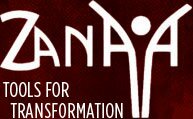Policy advocacy is vital in changing systems and structures, and working with governments important to realize lasting change. Founder Megan White began her work on sanitary pads publicly through launching the first ever National Sanitary Towels Campaign on Valentine’s Day 2006 in her capacity as the then-Incoming President of the Rotary Club of Nairobi South.
Bringing together key stakeholders including the Ministry of Education (MoE), Proctor & Gamble (P&G), the Girl Child Network (GCN) and others, it was the first campaign of its type globally, so far as we know, and brought the issue to the fore.
This launch arguably generated a wonderful landslide of events:
First, the government waived sanitary pads of customs and duty, substantially reducing the cost (by about 30%). Before this, sanitary pads were considered a luxury item – in the same category with lipstick! This also opened the door for more products into the market.
Second, P&G decided to invest $5M in donations of sanitary pads to girls in Africa (if you’re in the States you might have seen a 2007 campaign called Protecting Futures, which featured girls in Namibia). They also started lobbying the MoE to buy sanitary pads for girls as a basic right to accessing free primary education. Of course, they have a vested interest – the girl child is their future market base, and with about 250M girls on the continent, they take this very seriously.
Third, this opened the door for GCN and FAWE to work with the MoE to formulate the first Gender Policy in Education in 2007, which is a wonderfully detailed document. We are trying to find this document online so we can share it with you but have so far been unsuccessful. The Ministry of Education also included a specific Gender department, headed by Dr. Geoffry Wango, to help implement the Policy.
From this, momentum was sufficient to establish a National Sanitary Towels Campaign Coordinating Committee (NSTCCC, a terribly long name) in 2008. Megan was elected onto this Committee during the time she was trying to work through a local organization, and remained on the committee when she founded ZanaA. She helped to draft the Terms of Reference for the Committee was commissioned in February 2010 to create an online coordinating mechanism for national distribution, while creating an award-winning business plan for low-cost, eco-friendly manufacturing which she is committed to seeing through.
Since 2008 she has been talking with the MoE about including performance metrics in the data collected by schools to help inform policy through real-time data collection. See how this is becoming a reality.






